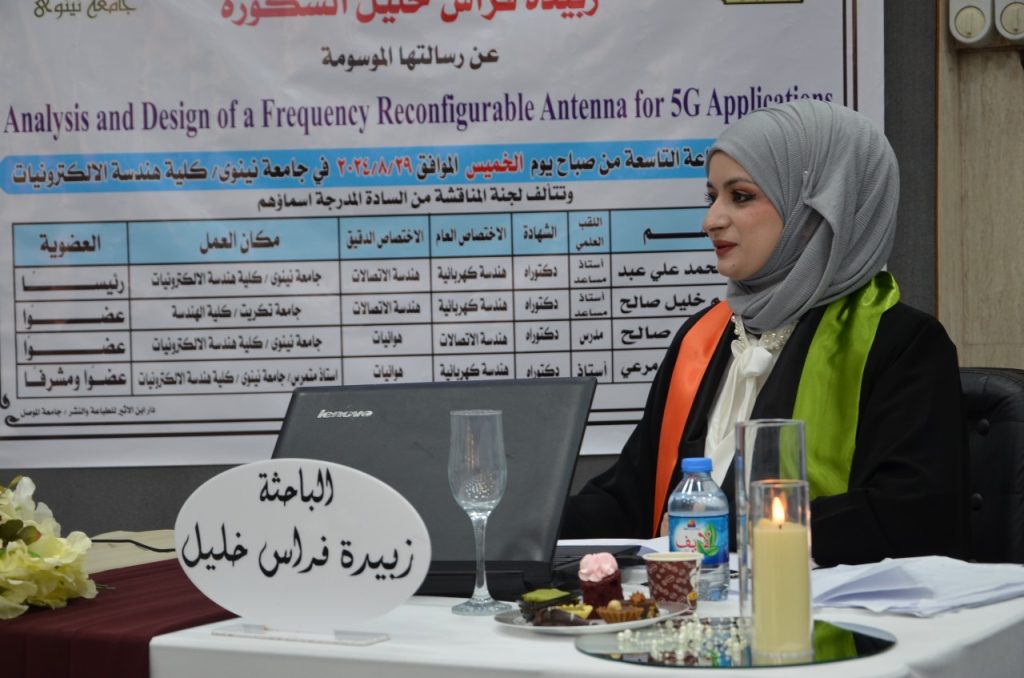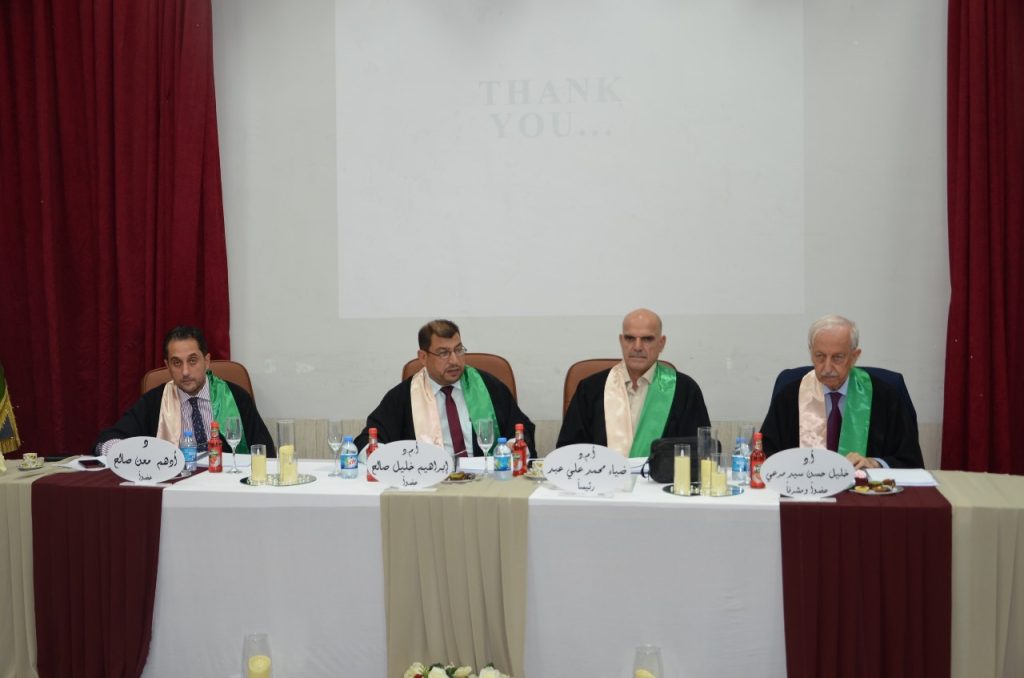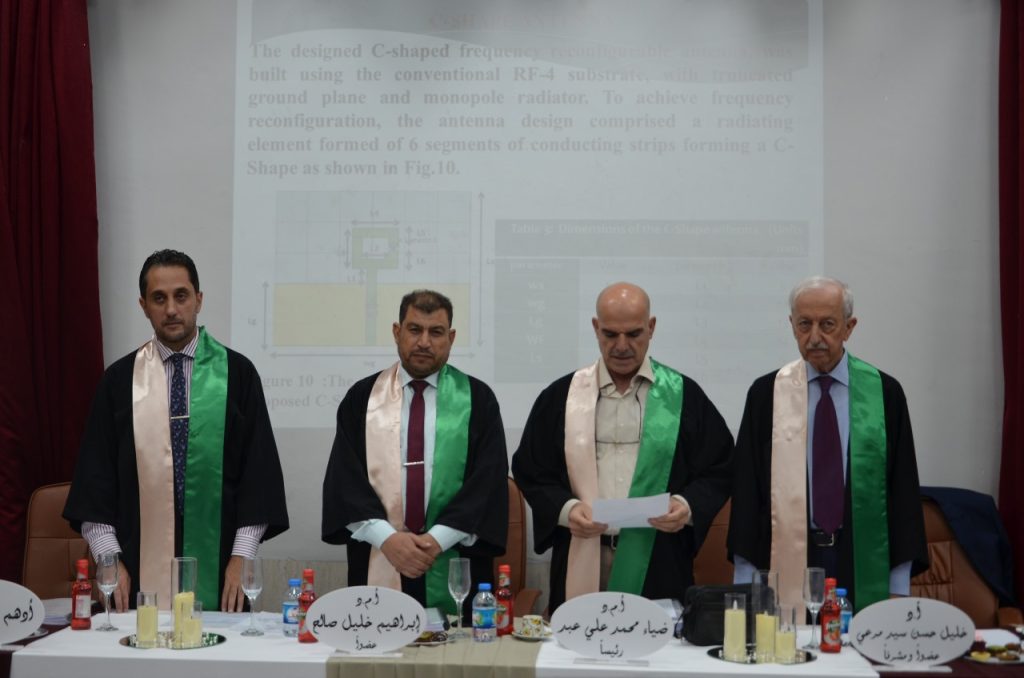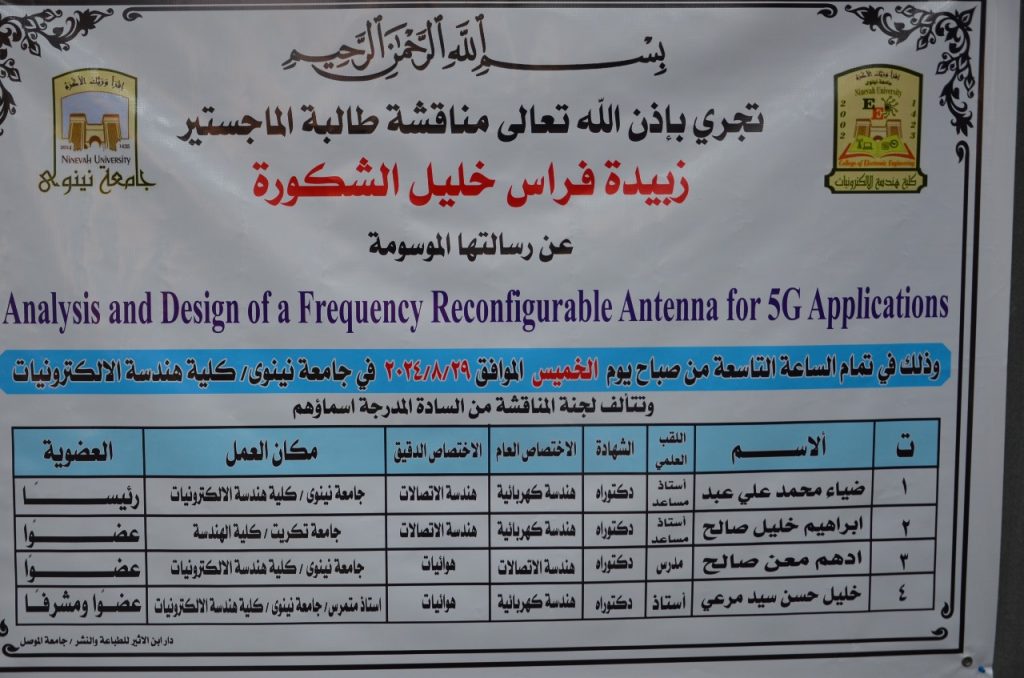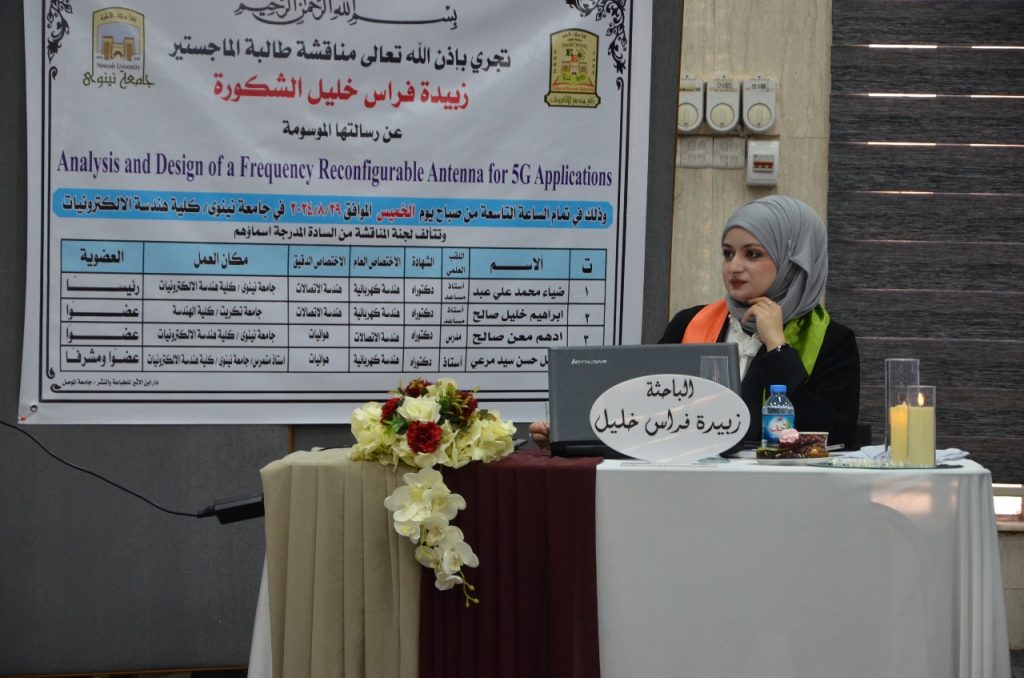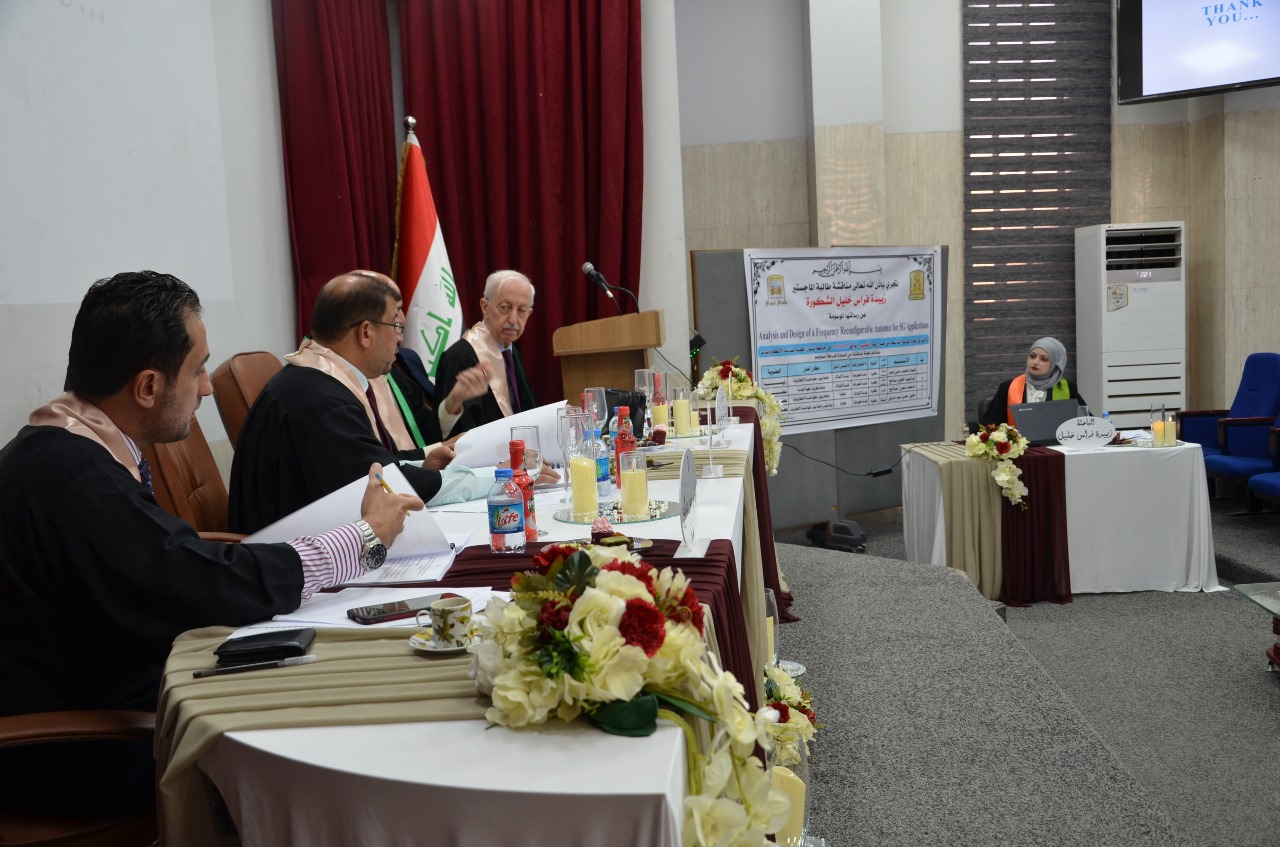The thesis, presented by Zubaida Firas Khalil from the Department of Communication Engineering at the College of Electronics Engineering, focuses on the analysis and design of a frequency reconfigurable antenna for 5G applications. It examines frequency reconfigurable antennas and offers several designs to implement this concept.
In the first design, the antenna is folded into a hook shape to reduce its size, and the reconfigurability feature is achieved by placing a PIN diode in the hook’s opening. When the diode is activated, the hook transforms into a square loop connected to the vertical part of the antenna. Each diode state results in a different electrical path length.
The second design studies the case where the end of the hook is connected to the ground plane instead of the antenna strip. In the third design, frequency reconfiguration is achieved by designing the antenna in the shape of the letter “C,” with a PIN diode placed in the opening of the “C.” Four designs of this type were studied, showing good reconfiguration properties, indicated by a significant difference in the reflection coefficient when changing the diode state. The performance was simulated and analyzed using CST Microwave Studio software.
After the committee listened to the researcher’s defense of her thesis, she was awarded a master’s degree in Communication Engineering, subject to some modifications. The committee wished the student and the discussion committee success and prosperity.
